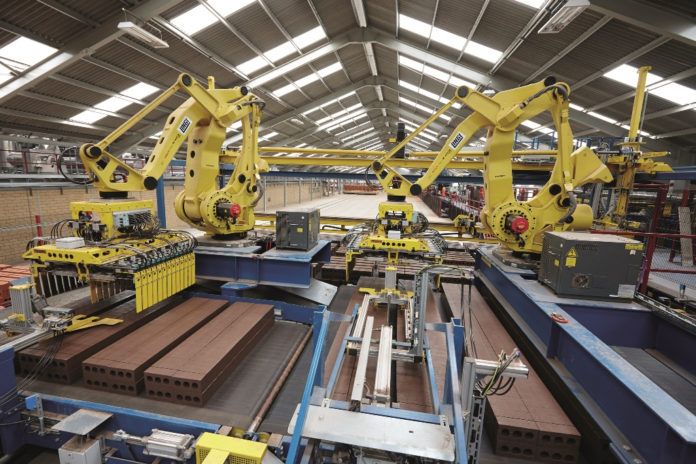In a group-wide restructure, Ibstock plc has announced that it has started consultations to cut 375 jobs and close three of its plants, due to the cost implications of the COVID-19 lockdown.
Ibstock closed its production facilities in early April, and while a phased re-opening began in mid-May, the company is still not fully open.
The planned cut represents around 15% of Ibstock’s workforce and will also see changes to the company’s working patterns. The restructuring is expected to cost £10 million this year and save £20 million a year from 2021.
Ibstock made a pre-tax loss of £52 million in the first half of 2020 (2019 first half: £41 million profit), with one-off costs of £41 million related to COVID-19 and restructuring.
Two clay brick factories, representing 5% of its production capacity, will be closed and the Atlas clay brick manufacturing facility in the West Midlands will be mothballed as part of the restructuring. A planned £45 million investment to redevelop its existing facility at the Atlas site in Walsall has been put on hold.
There will be changes to Ibstock’s operating patterns at other sites and a restructuring of support functions to cut overheads.
Joe Hudson, chief executive officer of Ibstock plc, said: “The COVID-19 pandemic has created unprecedented challenges for our industry and the wider UK economy. In response, we have taken swift and wide-ranging action to safeguard the future of the business, including some difficult decisions about the future shape of our manufacturing network. Throughout this period, the health and safety of our colleagues has been our key priority, and I would like to thank them all for their dedication and support over the last few months.
“We entered the crisis with a strong balance sheet. Decisive management action at the outset of the pandemic to control costs and preserve cash ensured the Group was adjusted free cash flow positive during the second quarter and we remain in a solid financial position. With new safe working procedures in place, the majority of our manufacturing plants have now reopened, and we are encouraged by recent market trends.
“The fundamentals for our markets remain positive, with a substantial housing deficit in the UK and government policy, which is supportive of the role the construction sector will play in the UK economic recovery. The action we have taken to strengthen the business and improve liquidity, including measures to reduce costs and restructure our operations, provide further flexibility and positions us well to meet current challenges and benefit from recovery in our core markets.”




